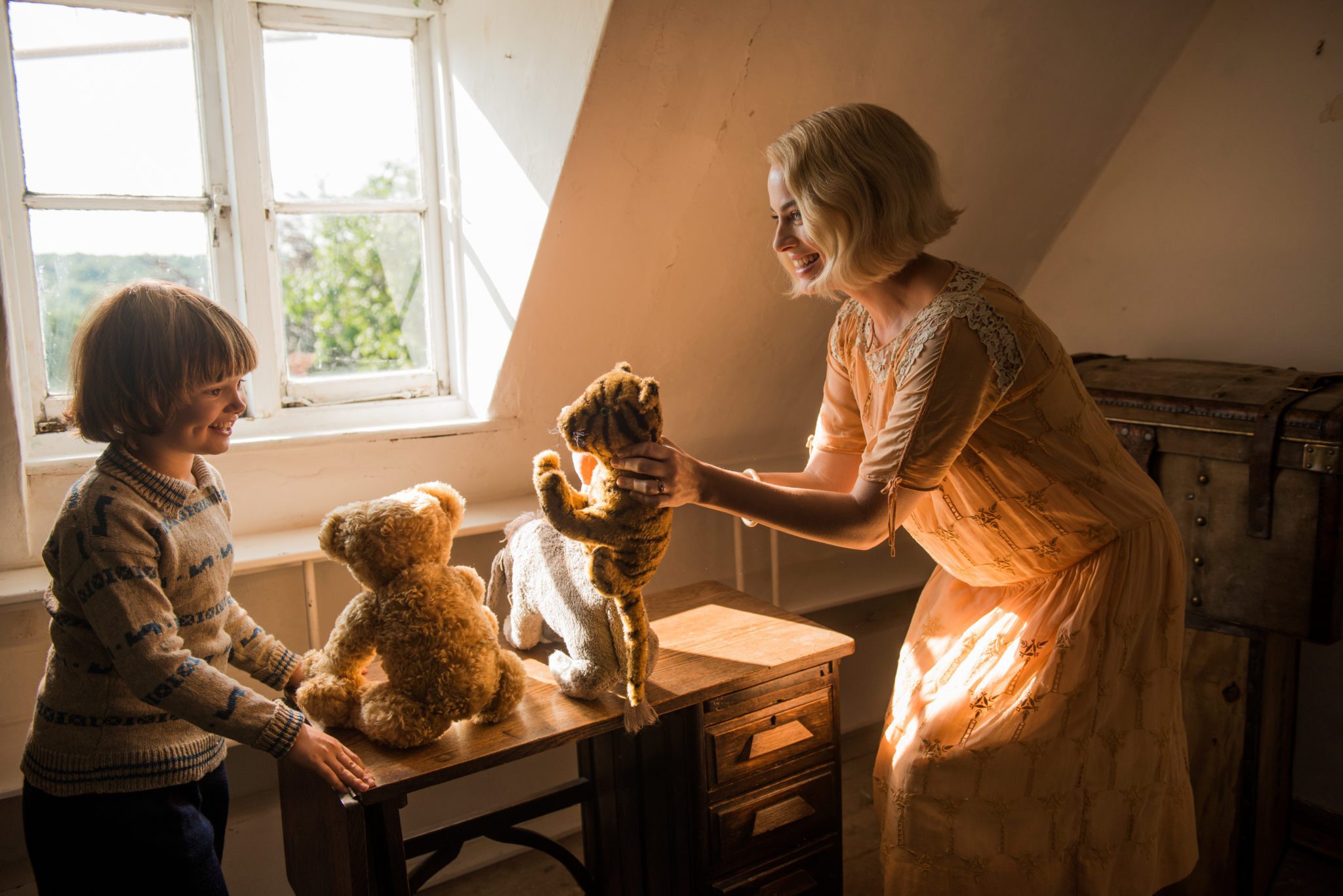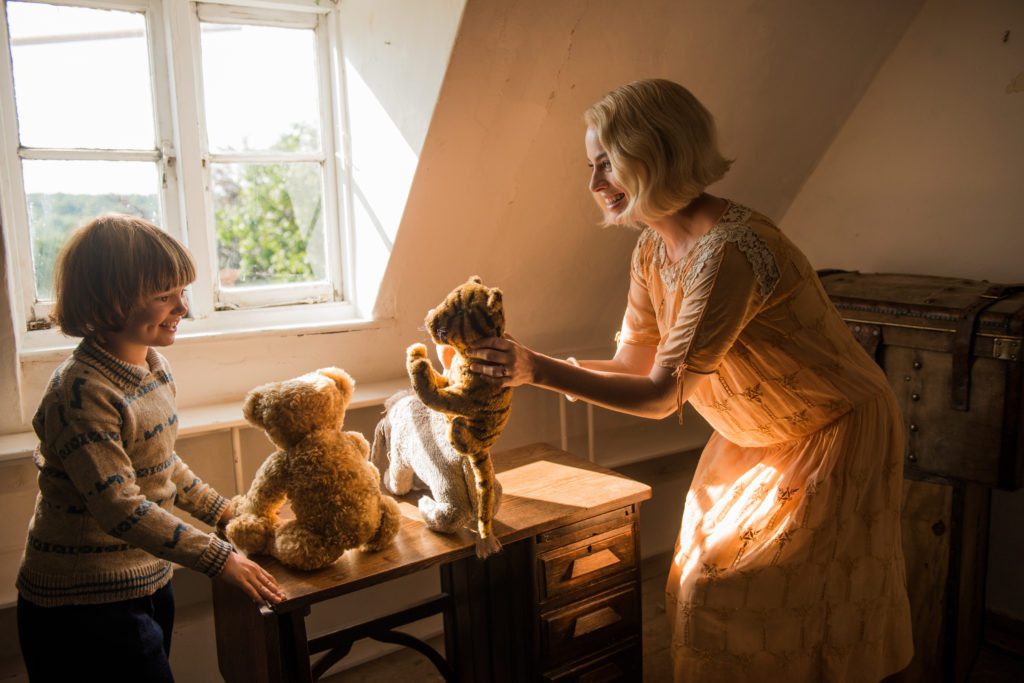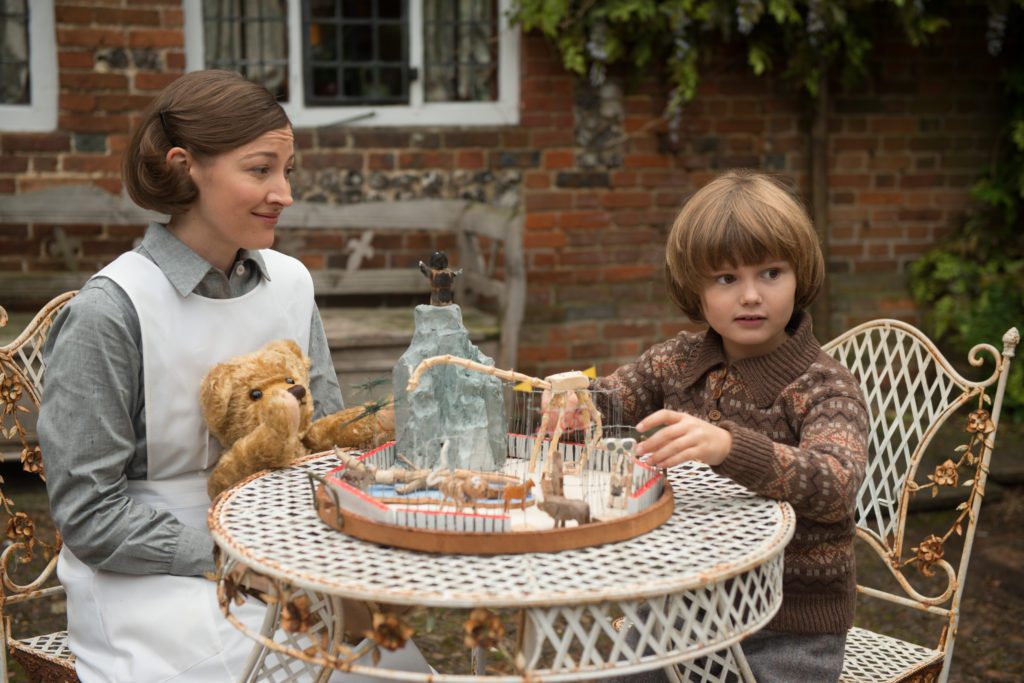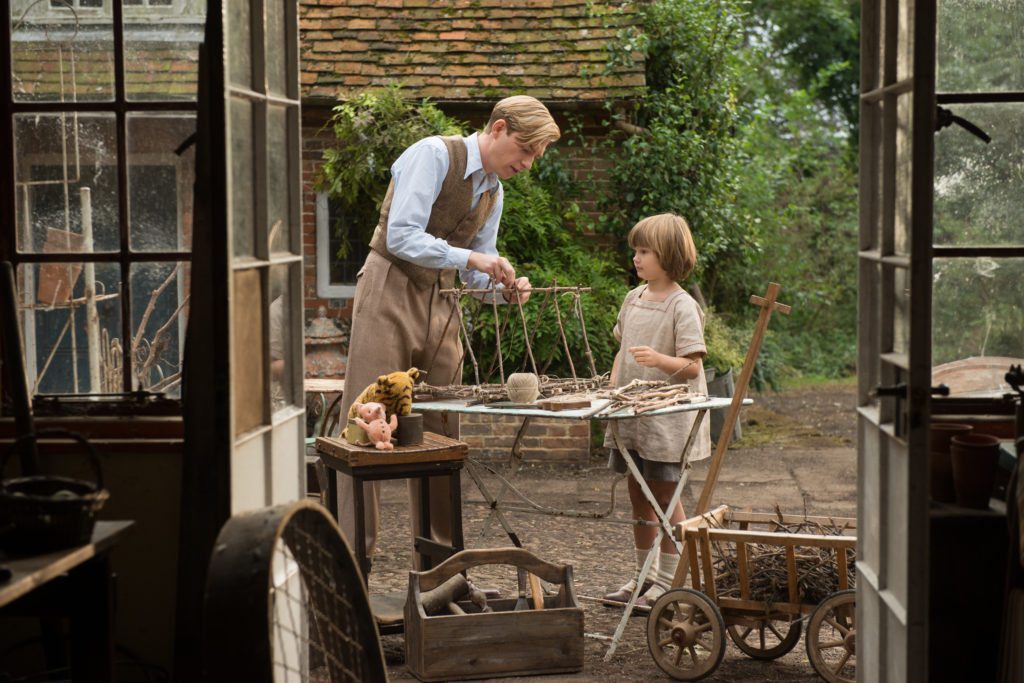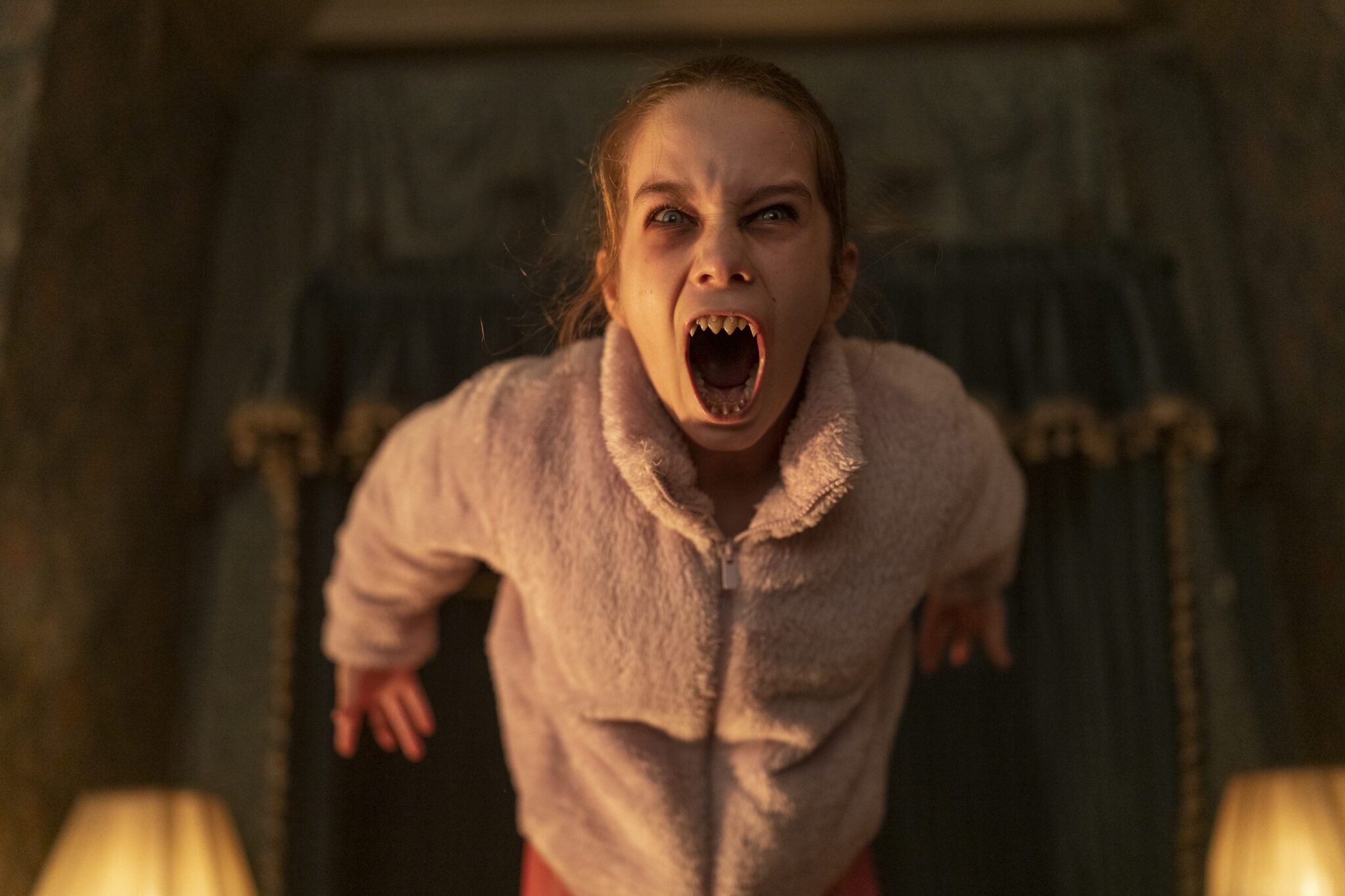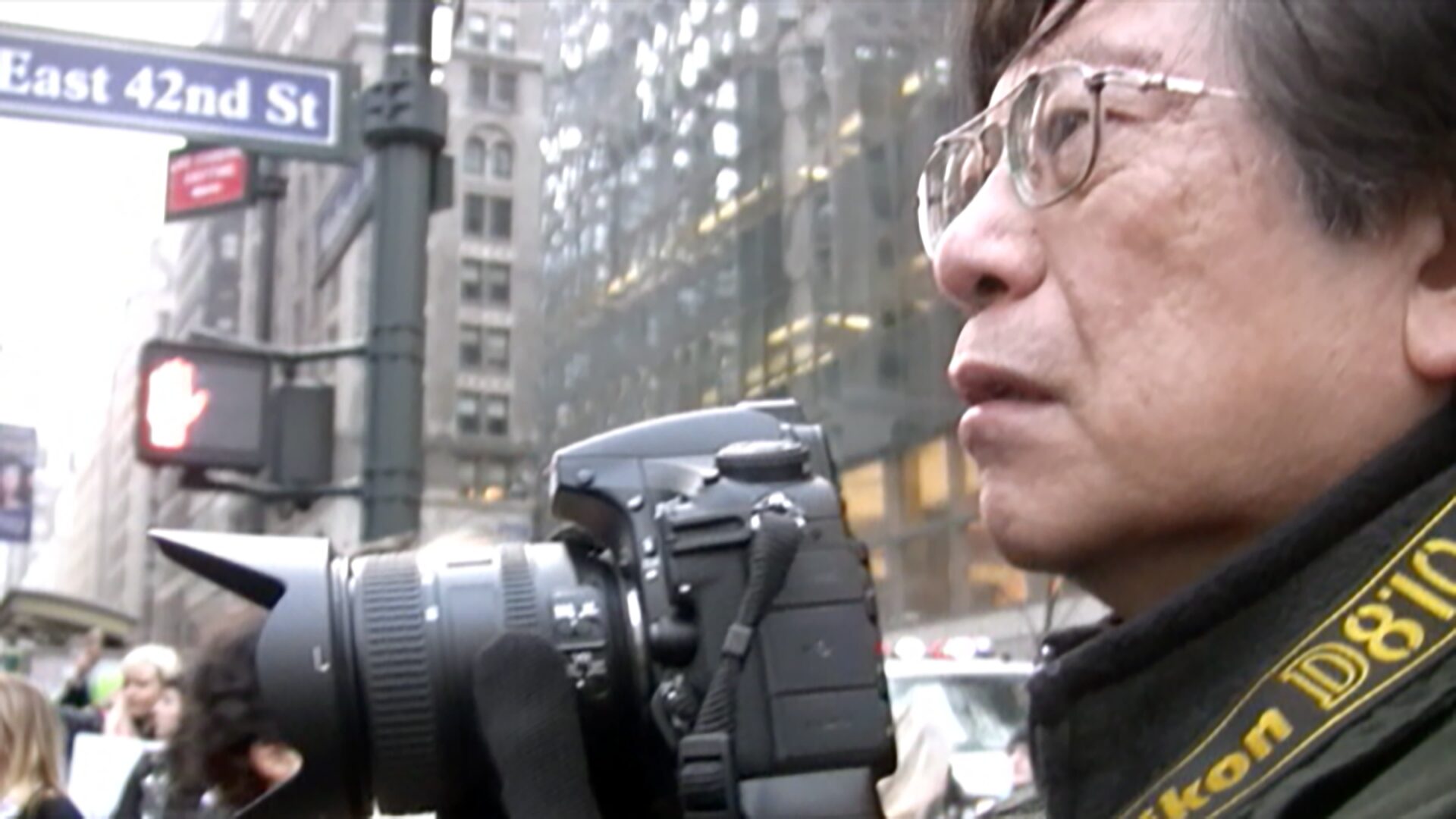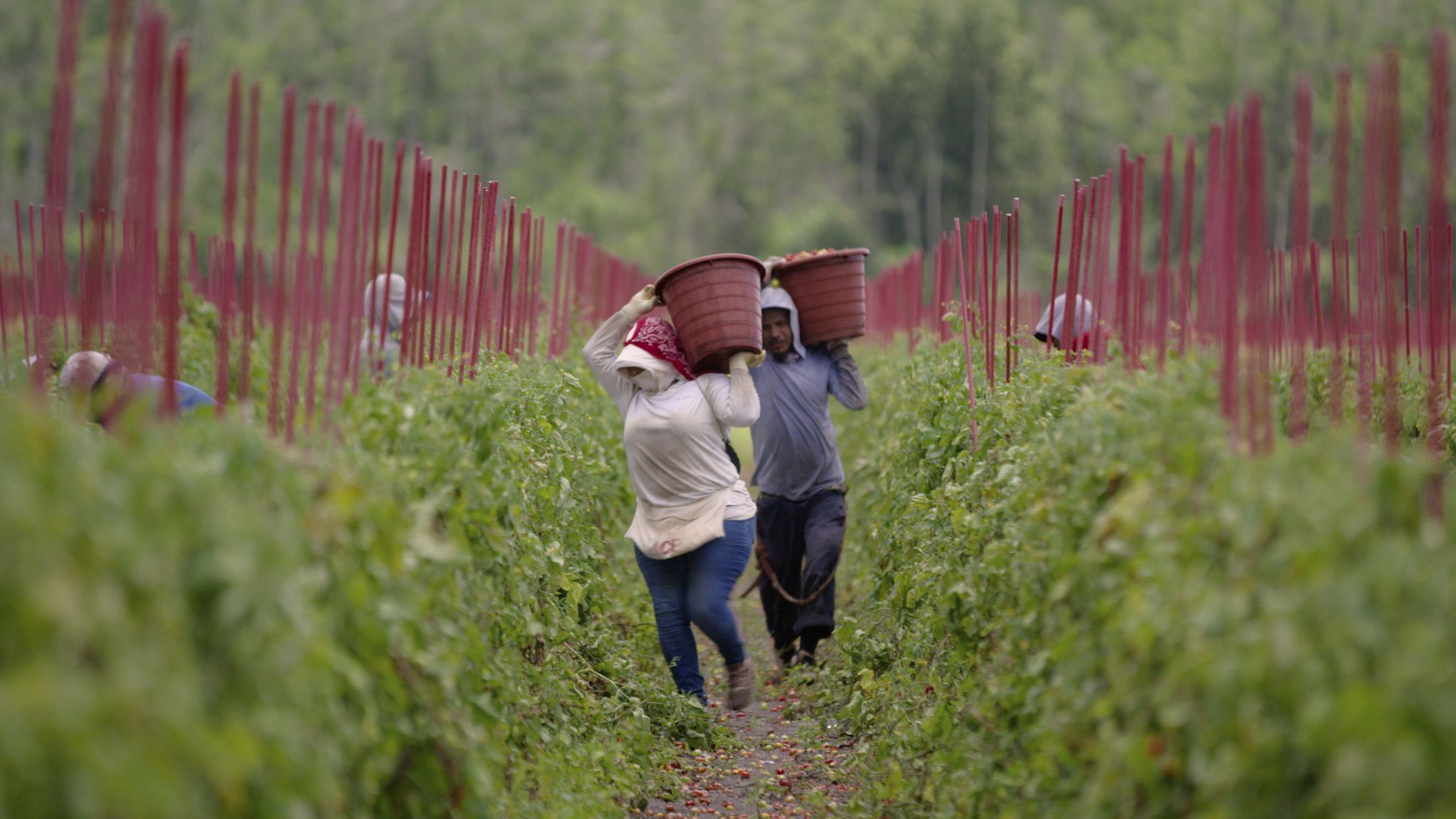Blue: ?Your childhood. . .? Billy: ?. . .Was wonderful. Growing up was hard.?
In a time when people were famous just for being famous, a young boy?s father writes a book with him as a character. Soon, the whole world wants to know and meet the ?real? Christopher Robin. Goodbye Christopher Robin is the story of the writing of the Winnie-the-Pooh books and how the success of those books impacted the young son of the author, A. A. Milne.
When Alan Milne (Domhnall Gleeson) returns from World War I, he has become cynical and disillusioned. He silently suffers from what we would now term PTSD. An established playwright, he is unhappy with his life. As he says, ?I?ve had enough of making people laugh. I want to make them see.? He moves with his wife Daphne (Margot Robbie) and young son Christopher (who they always call Billy Moon) (Will Tilston) to the country so he can concentrate on writing his book against war. Daphne sees this as a dead end. (?Writing a book against war is like writing a book against Wednesday.?) She returns to London until Alan gets something done. But she leaves the child there in the charge of a nanny, Nou (Kelly MacDonald).
Milne is something of the stereotypical cold, distant father. When Nou must leave for a few days, the father and son are thrown together with very little connection. As Milne steps aside from his writing to be with Billy (Christopher), he discovers a child with a vivid imagination and an innocent, joyful outlook. That becomes the basis for the Pooh books. The books were amazingly successful, bringing the family fame and wealth.
But that success has a price. Soon Billy is deluged with fan mail. Everyone wants to know the real life Christopher Robin. His days are filled with interviews and photo-ops. But is the boy everyone thinks they know from the books the same as the boy in the flesh? As his parents relish the attention, Billy is losing his childhood. Worse, he is losing his sense of self. He wishes that he could go somewhere (if there is any such place in the world) that did not know about Winnie-the-Pooh and Christopher Robin. The real Christopher Robin had been eclipsed by the fictional one.
When his father is telling him about the book, Billy asks why he is calling the character Christopher Robin. His father says that it is because that is his real name, but not who he really is. As a result Billy constantly deals with the onus of having to be Christopher Robin to the rest of the world.
That confusion of an existential identity plays out in his relationship with his father and with the world around him. At a publicity event, when Christopher is asked a question, he begins by saying ?Blue said? [pause] A. A. Milne? [pause] Daddy?? That is essentially his hierarchy of the relationship he has with his father. Blue is his playmate, A. A. Milne is the writer he lives with. It is only after those two that he sees the man as Daddy. The relationship would be a struggle for them into adulthood.
To know who one is is a fundamental need. We probably all must deal with competing selves: how we see ourselves, how others see us, prejudices, expectations. For young Christopher Robin that struggle defined his life. And for all the fame and adoration, he suffered greatly.
Photos courtesy Twentieth Century Fox Films

